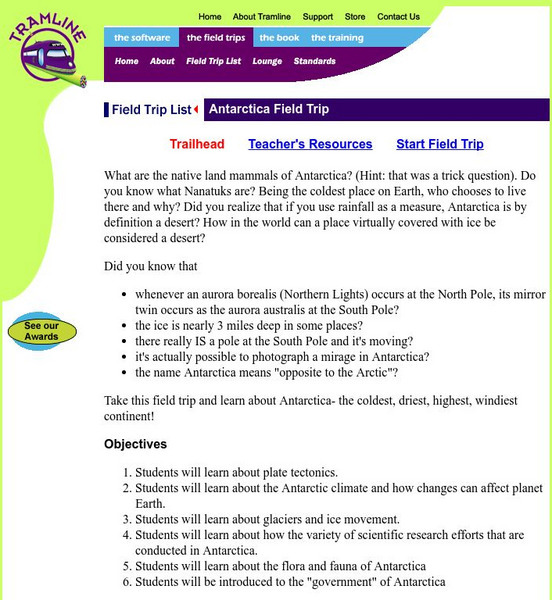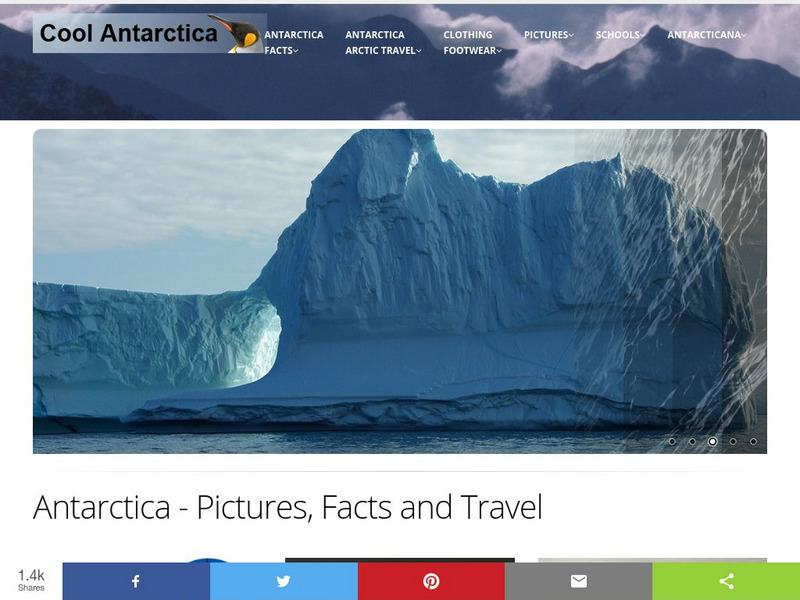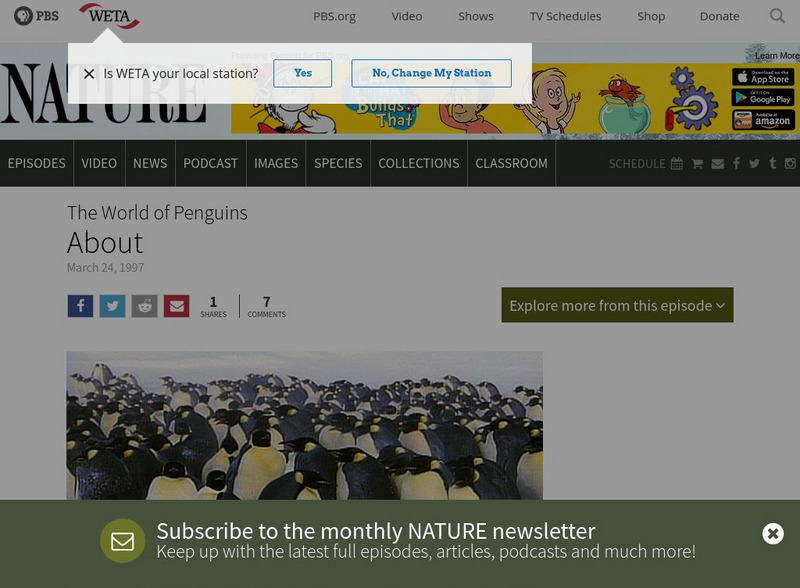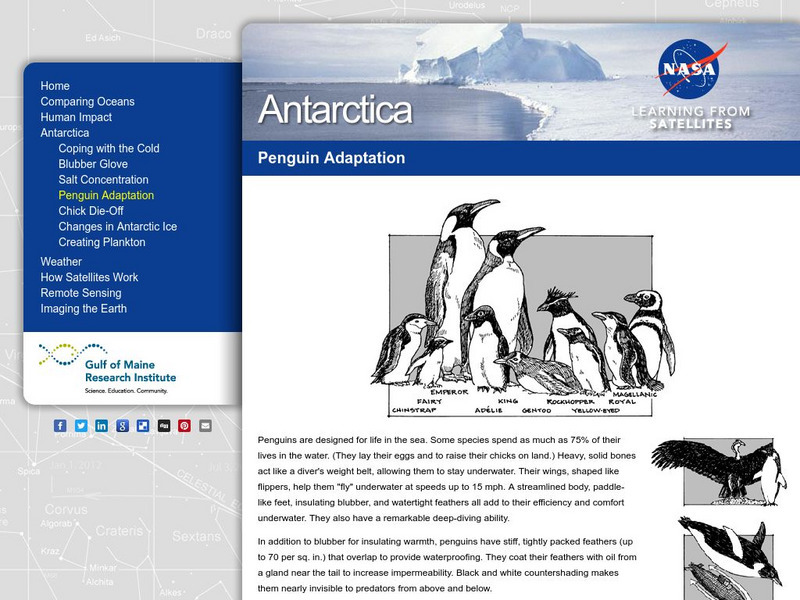Hi, what do you want to do?
Curated OER
Create a Classroom Exhibit: Rocks and Minerals
Young scholars bring in rocks and minerals from home. They observe them and describe them carefully, completing a worksheet. Finally, a classroom exhibit is created.
Curated OER
Minerals, Crystals, and Gems
Students discover the relationships between minerals, crystals and gems. They bring in rocks that they find at home, in the schoolyard, etc. and examine them and attempt to identify them. They set up a classroom exhibit that includes all...
Curated OER
History Close to Home: Creating Your Own Special Museum
Students create their own museum exhibit. In this museum creation lesson plan, students research their local history so they can decide on a theme for their exhibit and what objects they will use in order to design a museum exhibit. A...
Curated OER
Art to Zoo: Celebration
Students research and develop a report on birthday rituals around the world. In this research lesson plan, students compare birthday rituals from other cultures to their own. Images and resources are included.
Curated OER
Combustion Reactions
Students write a balanced chemical reaction. They articulate how burning fossil fuels increase the carbon dioxide levels in the atmosphere. Students incorporate all the environmental risks involved as well.
Curated OER
Emperor Penguins
In this reading for information activity, students read a one page text about Emperor penguins. Students then answer 8 true/false questions.
Curated OER
Reading: Emperor Penguins
In this reading comprehension worksheet, 4th graders read a one page text with facts about the Emperor penguin. Possessive words in the passage are in bold type. Students then answer 8 true and false questions.
Curated OER
Animal Encounters
Young scholars use their visualizing and interpreting skills to produce original writings and artwork.
Curated OER
Ocean Animals vs. Humans
Students use critical thinking skills to solve word problems using ratios that allow them to compare humans to ocean animals.
Curated OER
Breaking News English: Fleas Have Organ-Saving Antifreeze
In this English instructional activity, students read "Fleas Have Organ-Saving Antifreeze," and then respond to 47 fill in the blank, 7 short answer, 20 matching, and 8 true or false questions about the selection.
Tramline
Tramline: Antarctica Field Trip
"What are the native land mammals of Antarctica? Do you know what Nanatuks are? Did you realize that if you use rainfall as a measure, Antarctica is by definition a desert?" Find the answers to these questions and more in this...
Other
Cool Antarctica: Pictures, Information, and Travel Guide
A complete look at the continent of Antarctica. You can view pictures, utilize a fact file index, and get a historical timeline.
PBS
Pbs: Nature: The World of Penguins
What do you know about the world of penguins? This PBS site features information about these flightless birds. Come and check out this extraordinary resource.
National Geographic
National Geographic: Crittercam Chronicles: Antarctica
Play a game where you explore three scenes in Antarctica and find different types of animals: south polar skua, crabeater seal, emperor penguin, ice fish, leopard seal, killer whale, krill, adelie penguin, and weddell seal. After you...
The Wild Classroom
The Wild Classroom: Biomes of the World: Polar Ice Caps Biome
Learn about the polar ice cap ecosystem. Find out about plants, animals, adaptations, and conservation efforts.
Gulf of Maine Research Institute
Gulf of Maine Aquarium: Antarctica: Penguin Adaptation
Read a paragraph about penguin adaptations and then create a suit for a penguin. Materials are listed at the bottom of the page.
E-learning for Kids
E Learning for Kids: Antarctica Fishing Boat: Where Do Sounds Come From?
In this lesson, students explore where sounds come from and the different sounds that animals make.
E-learning for Kids
E Learning for Kids: Science: Bay of Whales: Calculating Speed
Amelia is a researcher. She studies the speed of animals. Join her in Antarctica to help her figure these calculations.
Missouri Botanical Garden
Missouri Botanical Garden: Cold Deserts of the World
A chart summarizes the sizes, physical features, plant and animal life, and special facts of a selection of the world's cold deserts, including Antarctica, the Gobi, and the Great Basin Desert in the western United States.
San Diego Zoo Global
San Diego Zoo: Kids: Bee
Bees fly from flower to flower, sipping nectar and collecting grains of pollen. Bees have a special tongue that sucks up the nectar and a crop in their throat for storing it until they get back to the hive, where it is turned into honey...
E-learning for Kids
E Learning for Kids: Science: Nova Zembla: Why Do We Need Plants?
This module explores how plants help animals survive. Bobby is a scientist on Antarctica. He discovers many amazing uses of plants. Join him and help him learn.
Woods Hole Oceanographic Institution
Polar Discovery: Compare the Poles
A detailed comparison of many aspects of the two polar regions. Includes physical features, seasons, weather, types of ice, plants and animals, human population, and climate change.
Other
Aquarium Kaiukan: Creatures and Anecdotes (Japanese)
The Japanese-language homepage of the Osaka Kaiukan Aquarium, one of the largest in the world. It introduces visitors to the creatures that inhabit zones of the Pacific, from the Aleutian Islands in the north to Antarctica in the south....
Other
Antarctic Animals: Leopard Seals
A very short description of this solitary predator with a revealing picture that brings home the ferocity of this mammal.



























